返回目录:word文档
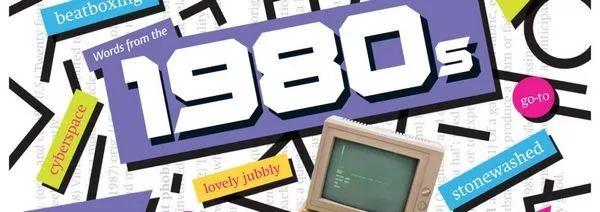
The habits of post-war austerity had begun to chafe in the 1960s. The economic shocks of the 1970s did little to permit the loosening of shackles, but in the 1980s the dam really burst. Money, and how to make and spend it, were at the top of the agenda.
战后紧缩的习惯在20世纪60年代开始恶化,70年代的经济冲击让人们无力摆脱束缚,而到了80年代,大坝真的开始决堤了。金钱,以及如何赚钱和花钱成为首要议题。
Politically, deregulation was in the air. Patience with state controls was wearing thin, and people were ready to pass the levers of power into the hands of a right-wing government that would allow (or promise) more scope for individual initiative. In the world of high finance, this meant a clearing away of restrictions on how financiers were permitted to operate, and on the sort of fiscal schemes they could indulge in. As far as the British stock market was concerned, the climactic moment was the Big Bang of October 1986, which removed a whole range of previous restrictive practices. All the novel phenomena required names, and the fertile brains of brokers and bankers (at home with a menagerie of bulls, bears, and stags) obliged with an array of outlandish metaphors that have come to symbolize the decade: dawn raid (1980) and white knight (1978), golden hello (1983),golden parachute (1981), and greenmail (1983).
政治上而言,放松管制开始流行起来。人们对管控国家的耐心逐渐消退,开始准备将权力的杠杆交给右翼政府,这将允许或承诺更多的个人主动权。在金融发达地区,这意味着将要清除对金融家经营限制的许可,以及他们能大刀阔斧地进行财政计划。就英国股市而言,巅峰时刻是1986年10月的金融大爆炸(the Big Bang),它取消了以前的一系列限制性做法。所有新生现象都需要个名字,经纪人和银行家们神奇的脑力也需要一系列奇怪的隐喻来表示,这些隐喻成为这个十年内的象征:dawn raid (黎明突袭,指一天交易开始时出其不意大量收购公司股票,1980年)、white knight(白衣骑士,指拯救不利公司的人或机构,1978年)、golden hello(黄金问候,指给新员工的厚遇或高薪聘用,1983年)、golden parachute (黄金降落伞,指高额离职补贴,1981)和 greenmail(绿票欺诈,1983)。

Readers of the financial and business columns of the newspapers would puzzle over arbs (1983) and derivatives (1985), new acronyms like EFTPOS (electronic funds transfer at point of sale; 1982) and PEP (personal equity plan; 1986), new concepts such as the internal market (in which departments within an organization charge each other for services; 1989).
新闻报纸财经板块的读者经常深处迷雾中,例如看到arb(套汇者,1983)和derivative(衍生品)等词,或EFTPOS(电子资金转账终端,1982)和PEP(个人股权计划,1986)这样的缩略语,或是the internal market(内部市场,即组织内各部门内部结算收取服务费用,1989)这样的新概念。
In the Far East the tiger (1981) (or dragon (1981)) economies were cranking themselves up, and from Japan came the notion of zaitech (investment in financial markets by a company; 1986). Payment increasingly meant plastic (1975), with the prospect of being able to swipe (1986) your smart card (1980). And Britain now had pound coins (1980), introduced in 1983.
在远东地区,the tiger(虎,1981)或称为dragon(龙,1981)的经济体正在加速发展,来自日本的概念zaitech(财术,指大公司从事大规模金融市场投资,1986)。付款方面更多使用plastics(信用卡,1975)或wipe(刷,1986)你的smart card(智能卡/磁卡,1980)。
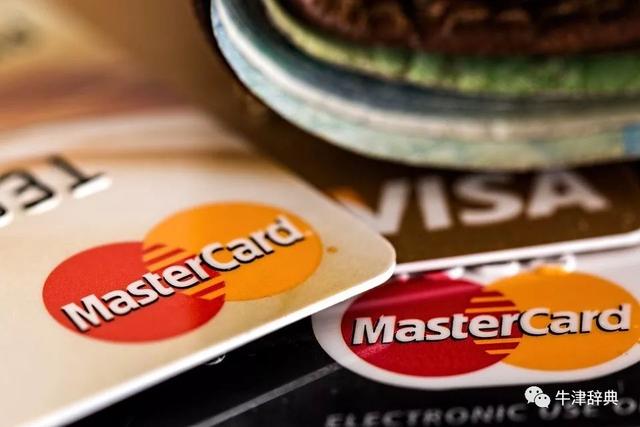
People who had a lot of money in their pocket were intent on spending it – and not discreetly. If you had it, you flaunted it; it was the era of conspicuous consumption (a phrase from the late 19th century whose time had now come). The quintessential figure of the decade was the yuppie (1984), the high-earning 20-30-year-old business executive, lawyer, stockbroker, etc. with the smart car and the cell phone (1983). It was to be the first of a rash of such life-style coinages.
口袋里塞满了钱的金主意在花光钱财,无需谨慎。有钱那就露出来,这是一个炫耀性消费的时代。这十年里的典型人物是the yuppie(雅皮士,1984)、2-3十岁的高收入企业高管、律师、股票经纪人等,他们开着智能汽车并用着cell phone(手机,1983)。此类生活方式中的新词即将涌现。
The lexical fashion fad of the 1980s left a legacy of buppies (black yuppies; 1984), dinkies (dual income, no kids; 1986), and woopies (well-off older people; 1986). Stressed-out (1983) thirty-somethings (1981) relaxed in wine bars (1981), shopaholics (1977) shopped till they dropped, the chattering classes (1980) chattered, foodies (1980) held olive-oil tastings, and power dressing (1979) was the fashion statement that mattered.
80年代里,时尚风潮在词汇中留下了buppie(黑人雅皮士,1984)、dinkies(丁克夫妻,1986)和woopie(富裕的老年人,1986)。Stressed-out (压力重重的,1983)thirty-somethings(三十好几的人,1981)在wine bars(红酒吧,1981)里放松放松, shopaholic(购物狂,1977)在商店狂买不停,chattering classes(名嘴阶级,1980)说啊说,foodie(美食家,1980)举行橄榄油尝鉴会,而power dressing(权力穿着,指显贵或要员打扮,1979)是重要的时尚名片。
But if the rich got richer in the 1980s, the poor also got poorer. Cardboard cities (1982) were appearing, and unemployment swelled the numbers attending job clubs (1985). No employee seemed safe from the dreaded UB40 (a card issued to unemployment-benefit claimants; 1983). This was the world not of the sharp suit but of the shell suit (1973). The happy partying of the earlier part of the decade gave way to the sound of lager louts (1987) breaking glass.
不过,如果富人越来越富,穷人也会变得更穷。各地cardboard cities(纸板城市,指贫民区,1982)相继出现,失业现象使得加入job club(工作俱乐部,指求职中心,1985)的人数激增。这里不是裁剪得体的西装的世界,而是遍布shell suit(贝壳装,指宽松休闲装,1973)。前十年的欢乐派对被lager lout(耍酒疯的年轻人,1987)打碎玻璃的声音所取代。
In Britain, Margaret Thatcher proclaimed the enterprise culture (1979) and the joy of marketization (1978). Her government (bone-dry (1983) by the middle of the decade, having been purged of wets (1980)) pursued the feel-good factor (1984), but managed to upset Middle England (1982) with the poll tax (1985) (officially named the community charge (1985)). The leaderene (1980) gained a reputation for handbagging (1987) all who tried to thwart her. Television arrived in the British parliament and with it the strange practice of doughnutting (clustering round a speaker to give the impression of full attendance; 1989). Ominously, the terms sleaze (1980) and spin doctor (1984) appeared for the first time in the political lexicon.
在英国,撒切尔夫人传扬enterprise culture(企业文化,1979)和marketization(市场化,1978)的喜悦。她的政府极力追求feel-good factor(良好感觉因素,1984),但却通过poll tax(人头税,1985)令Middle England(英国中产阶级,1982)失望。电视进入英国议会,随之而来的是一种奇怪的做法,称为doughnutting(多纳圈做法,即围绕聚集在演讲者周围,给人一种全勤出席的印象,1989)。不详的词汇sleaze(政治舞弊,1980)和spin doctor(旋转博士,指舆论导向专家,1984)首次出现在政治语汇中。
In the 1980s, cyberspace (1982) infiltrated the interstices of the everyday world. Only an ageing minority were not, it seemed, computerate (1981), and able to cope with booting (1982) and dragging (1983), recognize an icon (1982) or a spreadsheet (1982), or use a laptop (1983), a palmtop (1987), or a touchpad (1974). Kids could play with their Pac-man (1981) or use their Game Boy (1989), and there were now vaccines (1986) to counter the threat of viruses.
在80年代,cyberspace(网络空间,1982)渗透到日常世界的各个角落。似乎只有少数老年人不能computerate(精通电脑的,1981),无法处理booting(启动开机,1982)和dragging(鼠标拖动,1983),不能识别icon(图标,1982)或spreadsheet(电子表格,1982),不会使用laptop(笔记本电脑,1987)和palmtop(掌上电脑,1987),或touchpad(触摸板,1974)。孩子们可以玩儿他们的Pac-man(吃豆子,1981)或玩儿Game Boy(游戏小子游戏机,1989),而现在的vaccine(疫苗,1986)可以对抗多种病毒的威胁。
Increasingly, though, the computer’s most pervasive influence on the modern world lay in the area of communication. It was the decade that saw the beginnings of the internet (1974) and the information superhighway (1983), of email (1979) and domains (1978) and newsgroups (1983). The days of snail mail (1982) were numbered. The era of the virtual (1982) was coming.
计算机对现代世界最为普遍的影响越来越集中在通讯领域。这十年见证了多种通讯形式的诞生,包括internet(互联网,1974)、information superhighway(信息高速公路,1983)、email(电子邮件,1979)、domain(域名,1978)和newsgroup(新闻组,1983)。而snail mail(蜗牛邮件,指邮局寄出的信件,1982)所需时日不再几日之内。新的virtual(虚拟,1982)时代即将到来。
Environmental concerns grew ever more powerful, as the extent of human depredations became increasingly evident. We embraced the concept of biodiversity (1985), eagerly bought eco-friendly (1989) and cruelty-free (1986) products, nodded over the necessity for a carbon tax (1979), and supported the construction of wind farms (1980). From its fringes (eco-terrorists (1986) and New Age travellers (1986)) to its solid middle-class centre, the environmental movement was a force to be reckoned with.
随着人类掠夺环境的程度愈加明显,环境问题变得越来越严重。我们接受了biodiversity(生物多样性,1985)的概念,热切地采购eco-friendly(环保型,1989)和cruelty-free(无虐待的,1986)产品,对carbon tax(碳税,1979)的必要性表示赞同,并支持wind farm(风力发电厂,1980)的建设。从其边缘地带,包括eco-terrorist(生态恐怖分子,1986)和New Age traveller(新世纪游侠,1986),到其坚实的中产阶级核心,环境运动成为一股不容忽视的力量。
A prolific and vibrant youth culture produced a myriad new dances and styles of music (many of them of hip-hop (1979) origin). There was moshing (1987), body-popping (1982), and moonwalking (1983), break dancing (1982), dirty dancing (1987), and slam dancing (1981) (there was also lap dancing (1983), but that was not the same sort of thing at all). It was the decade of Acid House (1988), raves (1989), and warehouse parties (1988), of goths (1986) and thrash metal (1984), of the lambada (1988) and the bhangra (1987) beat. Garage (1987) took on a whole new meaning.
丰富而充满活力的青年文化孕育了无数新的舞蹈和音乐风格,其中很多都源于hip-hop(嘻哈文化,1979),其中包括moshing(1987)、body-popping(1982)、moonwalking(1983)、break dancing(1982)、dirty dancing(1987)、slam dancing(1981)以及lap dancing(1983)。这是Acid House(迷幻豪斯,1988)、rave(狂欢舞会,1989)、warehouse party(仓库派对,1988)的十年,是goth(哥特摇滚,1986)、thrash metal (鞭击金属,1984)、lambada(兰巴达,1988)和bhangra(邦戈拉舞,1987)各种节拍的十年。单词garage(车库,指车库音乐,1987)获得全新词义。
It was a culture that got its highs from ecstasy (1985) (or E (1985)). Designer drugs (1983) were the fashion of the decade, Prozac (1985) the favourite happy pill, and crack (1985) the new market leader.
这十年的文化在ecstasy(摇头丸,1985)中达到高潮。Designer drug(合成药物,1983)成为时代时尚,Prozac(百忧解,1985)是最受欢迎的快乐药丸,而crack(快客,1985)成为市场上新的主导性毒品。
Meanwhile, PC (politically correct; 1986) language made further strides by introducing the euphemistic challenged (1980) to avoid charges of ableism (1981). Fattist (1987) comments were to be severely discouraged.
同时,PC(政治正确,1986)的语言引入一些委婉语,以避免指责为ableism(体能歧视,1981)和fattist(胖子歧视,1981)。
The New Man (1982) proudly made his debut although, alas, within a decade he would have transformed himself into a New Lad (1991).
当New Man(新派男性,1982)年骄傲地首次登台亮相,然而,唉,十年之内他就转变成了New Lad(新派小子,1991)。
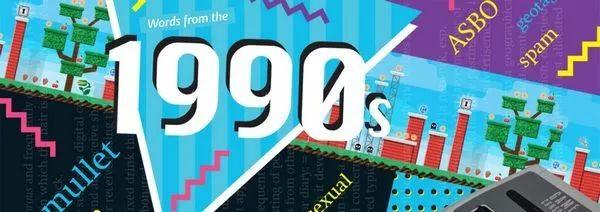
In the light of events two decades on, stirrings in the European undergrowth in the 1990s induce dark forebodings. The European Community was enlarging itself, and showing distinctly federalist tendencies. Under the terms of the 1992 Maastricht treaty, it transformed itself into the European Union (the terminology came into force officially in 1993, but is first recorded in 1983), abbreviated to EU (1990). Such developments were not to the liking of Eurosceptical (1990) elements within the ruling Conservative party in Britain.
20世纪90年代,欧洲丛林中的窸窣之声引发出黑暗的预兆。欧洲共同体正在扩充自己,并表现出明显地联邦主义倾向。根据1992年《马斯特里赫特条约》的条款,它转变为European Union(欧盟),该词于1993年正式生效,但早在1983年出现首次使用记录,后于1990年简写为EU。这些发展与英国保守党内部的Eurosceptical(欧洲怀疑论,1990)的因素不符。
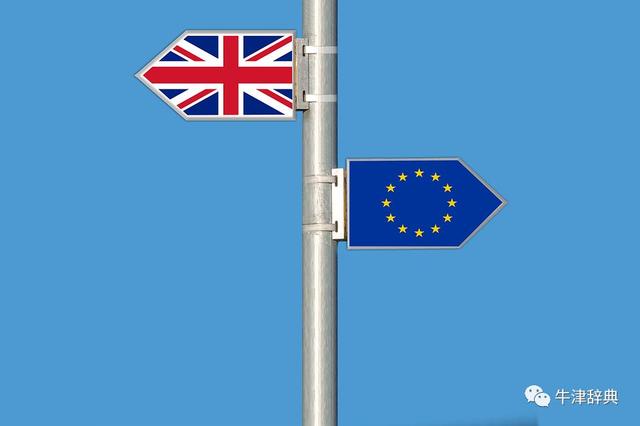
They were encouraged in their doom-laden predictions by Black Wednesday (1992), in which Britain was forced ignominiously to abandon its membership of the European Exchange Rate Mechanism. Meanwhile, slews of new euro- compounds hit the dictionaries, from the serious (such as euro note (1995), referring to the new European currency) to the sarcastic (such as eurosausage (1994)).在1992年的黑色星期三,英国被迫丢脸地放弃其欧洲汇率机制成员资格。与此同时,一系列与euro-前缀结合的词汇出现在字典里,从比较严肃型的euro note(欧洲纸币,1995),到讽刺型的eurosausage(欧洲香肠,1994)。
In the general election of 1997, the British Conservative government suffered a crushing defeat. Taking the Tories’ place, New Labour (1992): a transformed Labour party which had abandoned its more extreme socialist policies in favour of the third way (a buzzword of the 1990s, though it had some limited currency before). Under Blairism (1994), welfare to work (1981) and tough love (1981) were the thing. Having taken the lesson of more than a decade of internecine strife, the new government made sure its supporters stuck close to the party line: to be off-message (1992) was the greatest crime. Labour had learned well from the Clintonites (1992) in the US how to gain and hold on to power.
在1997年的英国大选中,保守党政府遭遇惨败,取代其地位的是New Labour(新工党,1992):一个转型后的工党,它放弃了更为极端的社会主义政策,转而支持第三种方式(尽管the third way一词在之前的流通很有限,但在90年代成为流行词)。在Blairism(布莱尔主义,1994)的领导下,重要事项里有welfare to work(工作福利,1981)和tough love(严厉的爱,1981)。新政府吸取过去十多年内讧的教训,确保其支持者坚持党内路线:off-message(脱纲,1992)就是最大罪行。工党从Clintonite(克林顿派,1992)那里学到如何获得权力并维持。
The get-rich-quick-and-flaunt-it society of the 80s had evaporated in the recession of the early 90s. Essex man (a working-class Conservative voter supposedly to be found in Essex; 1990) was no more (his place taken by Islington person (a middle-class Labour voter; 1994)), and Essex girl (a brash young woman supposedly to be found in Essex; 1991) was keeping a lower profile. It was forecast as the ‘caring decade’, although Generation X (the disaffected younger generation; coined in 1952, but brought to prominence by Douglas Coupland’s Generation X: tales for an accelerated culture (1991)) did not find it so, and neither probably did jobseekers (in existence as a general term since the 1850s, but elevated to official status in the UK in the 1990s).
80年代里快速致富并炫富的社会在90年代早期的经济衰退中消失。人们开始保持低调行事,据预测,这会是“关爱的十年”,不过Generation X(X一代,指不满的年轻一代,该词最早出现在1952年,但由于1991年出版的图书Generation X: tales for an accelerated culture而登上主舞台)并非如此,而jobseeker(求职者,该词在90年代成为英国的官方词汇)或许也不认同。
Confidence returned with the end of the recession, and Britain reinvented itself as Cool Britannia (a coinage of the 1960s, but now applied specifically to trendy British art, pop, film, and fashion; 1992), proprietor of Britpop (1986). For entertainment, people had docusoaps (1991) on TV, Aga sagas (1992) in the bookshops, and red top (1995) tabloids on the news-stands. At work, there was a good chance you would be hot desking (1991), and the new institution of dress-down Friday (1993) reached Britain from the US.
随着经济衰退的结束,人们的信心又开始恢复,英国将自己重塑为Cool Britannia(酷大不列颠,该词出现在60年代,但90年代特指时髦的英国艺术、流行音乐、电影和时尚,1992)。为了娱乐,人们在电视里看docusoap(纪实肥皂剧,1991),在书店里看Aga saga(一种小说类型,通常以英国乡村为背景,讲述中上阶层人物的家庭生活和情感生活,1992),在报摊上看red top(八卦小报,1995)。在工作领域,你有机会hot desking(漫游办公,1991),美国的dress-down Friday(便装星期五,是casual Friday的另一种说法,1993)也抵达英国。
You might be loved-up (1991) on ecstasy, or simply a little squiffy after a few alcopops (1996) (but not at the local gastropub (1996), where the accent was more on food than drink). Hopefully the result would not be an ASBO (antisocial behaviour order; 1997). Bad fashion choice of the decade was the mullet (1994) hairstyle (albeit not the inspiration for the metaphorical bad hair day (1991)).
你可能会因为迷幻药而loved-up(兴奋的,1991),或者仅仅是在喝了几杯alcopop(泡泡甜酒,1996)后稍带醉意,希望这不会引发ASBO(反社会行为令)的结果。这十年来最糟糕的时尚我会选mullet(鲻鱼头,1994)发型。

Cybernauts (1989) and Netties (1985) surfed the World Wide Web (1990) (or the Web (1990) for short). To be in the swim you had to have your own website (1993) or homepage (1993) or blog (1999), or you could communicate via SMS (short message service; 1991). It was the decade of all things cyber-: cybercrime (1991), cybersex (1991), cybershoppers (1994), cyberwar (1992), etc., etc. You would hope to avoid the spam (1994) and the mail bombs (1994), but the main fear in the cybercafé (1994) was the dreaded millennium bug (1995), which threatened to make the world’s computer systems crash when the clocks chimed midnight on 31 December 1999. At least cyberpets (electronic toys that need regular stimuli; 1995), such as the tamagotchi (1997), would not be affected; they only succumbed if you neglected them.
大量cybernaut(网虫,1989)和Nettie(网虫,1985)出没在World Wide Web(万维网,1990)上,或是简称为Web(网络,1990)。要想迎合潮流,你要么有自己的website(网站,1993)或homepage(主页,1993)或blog(博客,1999),要么通过SMS(短信息,1991)交流。这十年里所有东西都变得cyber-:cybercrime(网络犯罪,1991)、cybersex(网络色情)、cybershopper(网上导购)、cyberwar(网络战争)等等。人们希望能避开spam(垃圾邮件,1994)和mail bomb(邮件炸弹,1994),但在cybercafé(网吧,1994)里主要的恐惧是可怕的millennium bug(千年虫,1995),它威胁着当千禧年到来的钟声敲响时,会摧毁世界计算机系统。至少,一些像tamagotchi(电子鸡,1997)的cyberpet(电子宠物,1995)不会受此影响,只有你忘记照看它们才会死掉。
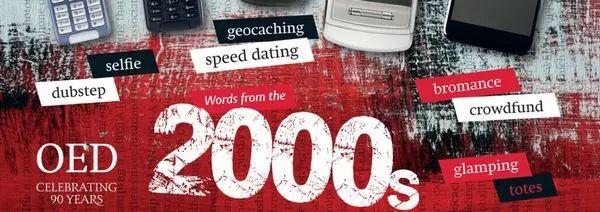
In the twenty-first century, at the dawn of the Anthropocene (2000) era, the human race began to abandon analogue socializing for the seductive delights of the digital ether. The twitterati’s (2006) word was law. How delightful to be retweeted (2007), but being defriended (2004), or squashed with an unlike (2008), was not so much fun. And the grown-ups certainly did not approve of sexting (2005). There was a hashtag (2007) for everything.
在21世纪,在人类世(Anthropocene /ˈanθrəpəˌsiːn/,2000)的黎明中,人类开始放弃模拟社会化,转而享受数字以太的诱人乐趣。像twitterati(网络达人,2006)的语言就是法则,被人retweeted(转发,2007)真是令人高兴啊,但被人defriended(取消好友,2004)或是点名unlike(不喜欢,2008)就不那么心情振奋了。成年人当然不会赞成发sexting(性短信,2005),而社交媒体上每条消息都可以有个hashtag(话题标签,2007)。
YouTubers (2006) whiled away the hours in front of their screens. You might be listening to a podcast (2004), or viewing a vlog (a video-blog; 2002), or, if more conventional entertainment was your thing, you could binge-watch (2007) some box sets (on Blu-ray (2001), of course). But why not be your own auteur, with an avalanche of selfies (2002) (facilitated in due course by the selfie stick (2012)). You would have to hope no one would try to photobomb (2008) you.看视频的YouTuber(优客,2006)们在屏幕前消磨时光,可能是在听podcast(播客,2004),或者在看vlog(视频播客,2002),或者说如果你更喜欢传统一些的娱乐,可以买Blu-ray(蓝光,2001)的套装碟,在家binge-watch(刷剧,2007)。为何不来场自导自演呢,大量selfie(自拍,2002)涌现,在selfie stick(自拍杆,2012)的帮助下更是便利,只是希望没人想要跟你photobomb(抢镜头,2008)。
Social media also enabled such phenomena as the flash mob (2003), a sudden assembly prompted by media messaging, and crowdfunding (2007), financial contributions from a wide range of sources. Altogether less welcome was happy slapping (2005), in which photographs of an assault were posted online.
社交媒体也促成了一些现象,例如flash mob(闪客,2003)和crowdfunding(众筹,2007)。其中最不受欢迎的就是happy slapping(开心掌掴,指受人侮辱、凌霸的照片发布到网络上,2005)。
For the athletically minded there was free running (2003), also known as parkour (2002). The more sedate might opt for Sudoku (2000), or arrange for a spot of glamping (upmarket camping; 2005). Soccer’s galacticos (2003) dominated the back pages of the newspapers (or perhaps you read them online, even if they were behind a paywall (2004)), and the Wags (wives and girlfriends; 2002) always made good copy. Cricket, meanwhile, continued its search for the public’s buy-in with Twenty20 (2002), a twenty-overs-a-side competition.
对于有运动头脑的人们来说,新世纪里还有free running(自由奔跑,2003),也被称之为parkour(跑酷,2002)。更恬静的选择可以是Sudoku(数独,2000)或是安排一场glamping(豪华露营,2005)。足球界的galacticos(银河巨星,2003)和Wags(太太团,2002)占据报纸的后几版,或者你在线阅读这些尚在paywall(付费区,2004)的报道。
Did you still do your shopping instore, using chip-and-pin (2001), or did you prefer to go online with click-and-collect (2000)? Overindulgence in either might result in the need for a declutter (2000). Any spare cash you had left over might be the target of chuggers (2002).
你是否还是用chip-and-pin(芯片密码支付,2001)去商店购物,还是更习惯click-and-collect(点击提货)的方式在线采购?无论哪种方式,购物太多就需要declutter(减持,清理,2000)一下了。你剩下的多余现金都可能成为chugger(慈善募捐人士,是charity mugger复合而成,指在大街上拦住人们为慈善组织定期募捐的人,2002)的目标。
We gobbled up our health-giving goji berries (2002), tut-tutted over fatbergs (2008), hoped we would not get SARS (severe acute respiratory syndrome; 2003) or Norovirus (2002), perhaps tentatively sampled the new e-cigarettes (2007) and, if we were male, found that our male friendships were bromances (2001) (but also, we might find ourselves being ticked off for mansplaining (2008)).
人们中间开始流行大吃有益健康的goji berries(枸杞,2002),对下水管网中的fatberg(油脂块,2008)不禁咋舌,祈祷不要患上SARS(严重急性呼吸综合症,即非典,2003)或Norovirus(诺如病毒,2002),也许会试着抽新型的e-cigarette(电子烟,2007)。如果是男性朋友,会发现男性之间的友谊可被称为bromance(基友,2001),但有时,我们可能发现自己因为mansplaining(男人说教,2008)而被打断。

There was much to the decade that was butters (horrible, disgusting; 2003), but also a lot that was nang (good; 2002) if not totes (2006) amazing.
这十年间,很多事物都是butter(恐怖的、恶心的,2003),但也有些nang(好的,2002)。因此,noughties(21世纪头十年,1990)让位给了青少年,欧洲也出现麻烦。希腊曾处于被迫退出欧元区的危险之中,记者们纷纷纠其候选报道,不断混合着词汇。Grexit(希退,2012)刚刚出现,很快被假设性的兄弟Brexit(英退,2012)赶超,后者的故事仍在上演。
来源:牛津英语辞典

翻吧·与你一起学翻译
微信号:translationtips
